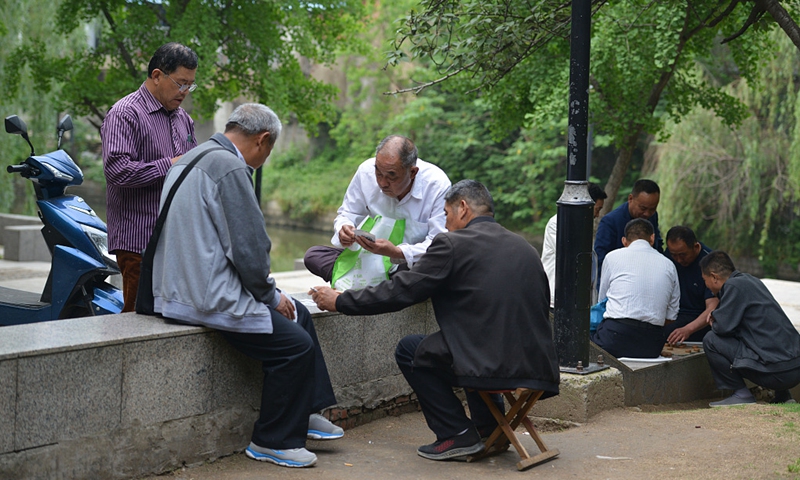
Photo: VCG
Following the release of China's seventh population census results on Tuesday, the country's aging population and low birth rate has increased public anxiety concerning care for the elderly. This anxiety isn't new and has actually gradually become a trendy theme for dramas and films to tackle. However, while the intent behind these works is good, many of them have fallen short in practice and more must be done to better explore the core of the issue and even try to solve it.
The national population census shows that the number of newborns in China in 2020 dropped to 12 million births from 14.65 million in 2019, while the total fertility rate of women of childbearing age was 1.3.
The number of people age 60 and above grew to 264 million, up from 177.6 million in the 2010 census, and the number of people age 65 and above grew to 190 million, up from 118.8 million in the 2010 census.
The increase in the aging population and decrease in birth rate have sparked discussion on how this group will be cared for. At one point in the discussion, a currently airing TV drama about the elderly on the issue caught the attention of netizens.
The drama Octogenarian and The 90s depicts the stories happening in a nursing home including the conflicts and moving relationships between the elderly and young people. Each of the elderly characters living in the nursing home have their own unique problems that reflect the present dilemmas facing many elderly people today.
However, the 39-episode drama, which began airing on Hunan TV on April 21, has not seen great viewership numbers. The show does not even have a rating on Douban, a major media review platform popular among young Chinese netizens.
One of major reasons why the drama didn't manage to win the hearts of audiences is that it failed to depict the actual lives of the elderly.
Although the drama attempted to tackle the issues facing elderly Chinese, these plots came and went too quickly and the elderly characters on the show were really just there to be a backdrop for the two young lead characters and their romantic relationship. In the end, a drama that tried to tackle an important issue just became another romance drama about young people.
Lacking a foundation in reality, the show didn't stand much of a chance of having its characters resonant with viewers.
This is a common problem in Chinese dramas and films.
If a work or entertainment or art is able to touch people's hearts, it stands a chance of promoting change and may even help solve a dilemma. For instance, the 2018 Chinese film Dying to Survive, which took aim at the high expenses of health care in China, actually helped promote medical reform in the country.
China could learn a thing or two from some of the works produced by other countries.
South Korean TV drama Navillera managed to receive high public praise while shining a light on people over 70. The drama is about an elderly man who wants to grasp one last chance to learn ballet.
The entire drama is centered on this character and all others that appear do so in service of this main storyline. The man's strong will to chase his dreams touched many viewers, not only in South Korea, but in other countries as well, including China.
"After watching the drama, I am less afraid of growing old since I know I can still do what I deeply love and still have a rich day-to-day life," Wan, a 27-year-old Chinese fan of the show, told the Global Times on Thursday.
This is one of the drama's advantages: showing the positive and optimistic side of the lives of elderly people.
Another country facing the serious issue of an aging population is Japan. There have been several Japanese documentaries focusing on elderly issues. Worth noting is that they each tend to focus on a single issue such as pension issues and feeling of loneliness, so they can dig more deeply into the problem.
China's TV and film productions have seen a great leap in quality in recently years both in terms of story and production quality. There are no good reasons why these productions can't also tackle these issues seriously, it is really just up to the studios to make them the core of a work and not just window dressing.
